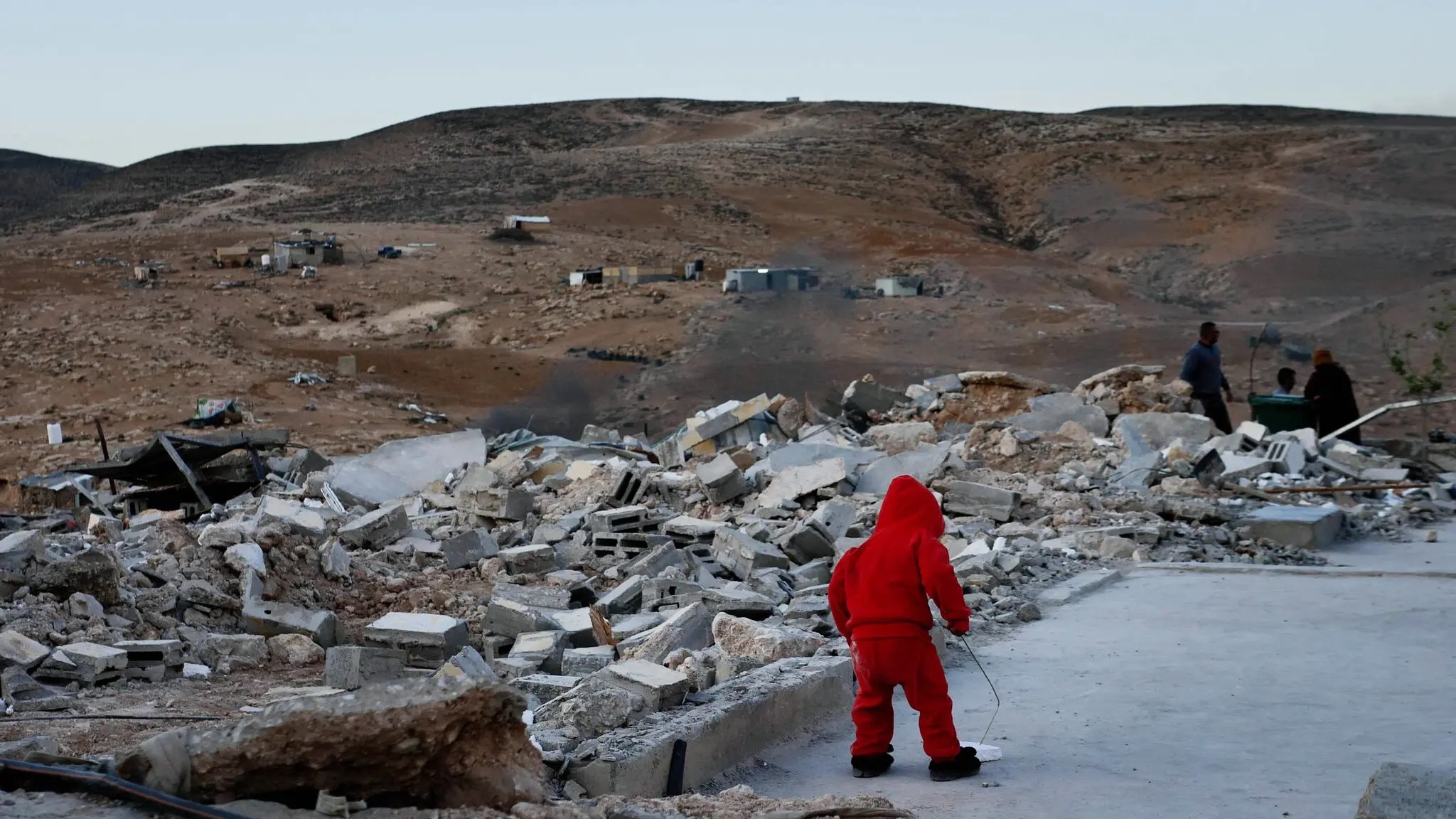While it offers no solution, the unlikely friendship between the Palestinian and Israeli filmmakers offers a sliver of hope.
When we read the words “Palestine” and “Israel,” it’s almost always followed by mention of death and destruction. While it’s sadly the same in this case, it’s in a slightly different context that offers a ray of hope: a documentary, and a highly acclaimed one at that.
Last night, I finally stumbled upon a link to No Other Land, the Oscar award-winning, history-making documentary film by the unlikeliest of teams—a Palestinian duo and their Israeli counterparts. The docu was produced from 2019 to 2023 and features mostly personal camcorder footage filmed by Palestinian activist Basel Adra, 28, who documents the Israeli military’s protracted destruction of his hometown, Masafer Yatta in the West Bank. These are interspersed with videos from Adra’s childhood—proof of how long these people have been suffering.
Related story: With five trophies, low budget ‘Anora’ is the biggest winner at this year’s Oscars
Related story: REVIEW: Latvian film ‘Flow’ is a breath of fresh air in the world of animation
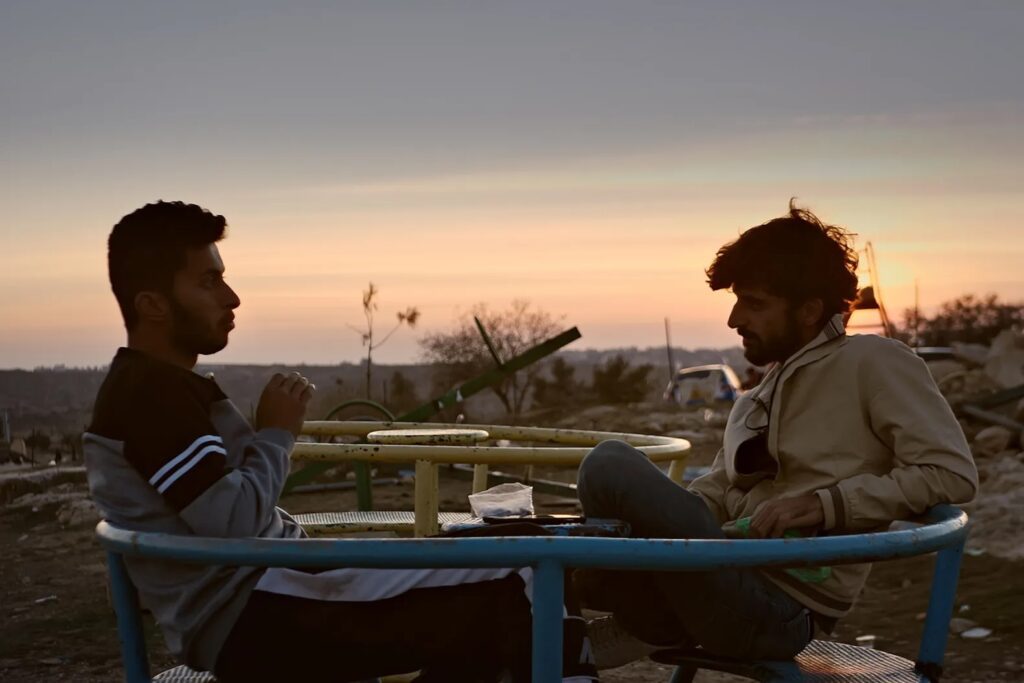


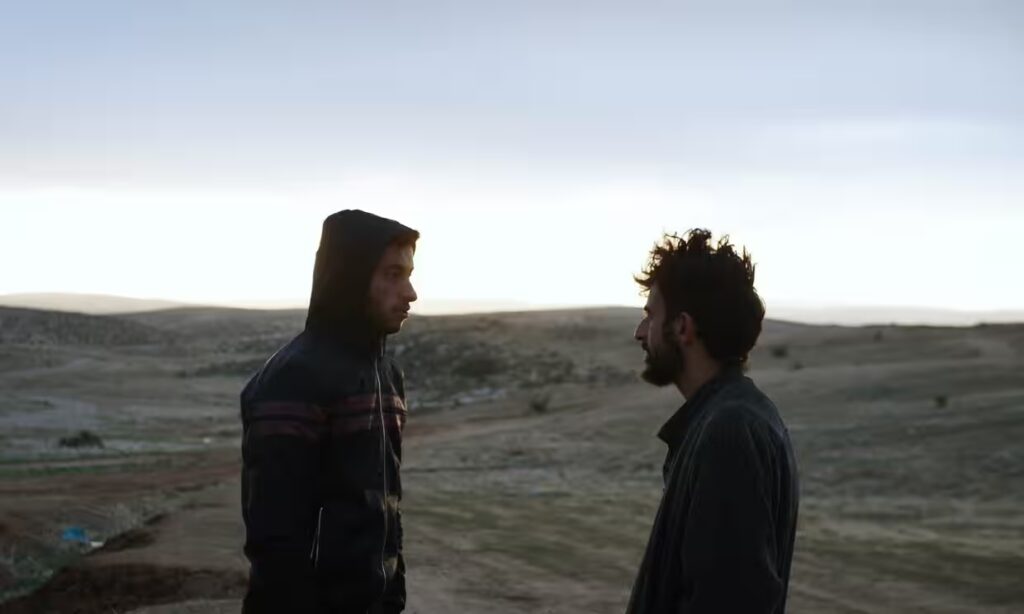


Joining him in chronicling the never-ending anguish of his people are Israeli photojournalist Yuval Abraham, Palestinian Hamdan Balla, and the other Israeli half of the equation Rachel Szor.
While current news on the Palestinian Territories are mostly focused on Gaza, where Israel has resumed heavy bombing following what has proven to be a flimsy ceasefire with Hamas, No Other Land allows us a peek into the less-reported West Bank, where the situation is not as cataclysmic but still constantly teeters on the brink of a humanitarian catastrophe.
As the team documents the numerous, successive, and violent Israeli demolitions of homes in Masafer Yatta’s 19 hamlets, we also see an unlikely friendship blossom between the Palestinian Adra and Israeli Abraham. Despite his nationality, the Palestinians welcomed Abraham into their homes and even trusted him enough to allow him to help them with their often-futile rebuilding of demolished structures, as the Israeli army usually destroyed what the villagers built overnight the following day.
We have sort of gotten used to—with many of us to the point of desensitization—seeing the plight of Palestinians on the news. What makes No Other Land a truly harrowing watch is that footage you see in the documentary doesn’t usually make it to mainstream media. It’s not set against what is already a nearly decimated city; it unfolds in a rather secluded and peaceful rural area. The villagers are simple folks who rely on their land for a living but are subjected to violence almost on a regular basis by the Israeli military. I am still stunned—and appalled—by how much hatred the Israelis show to Masafer Yatta’s inhabitants, most of whom live on land owned by their families for generations.
Related story: REVIEW: Equal parts witty and earnest, ‘A Real Pain’ is a real treat
Related story: REVIEW: ‘The Substance’ is an audacious and grotesque depiction of Hollywood’s double standards
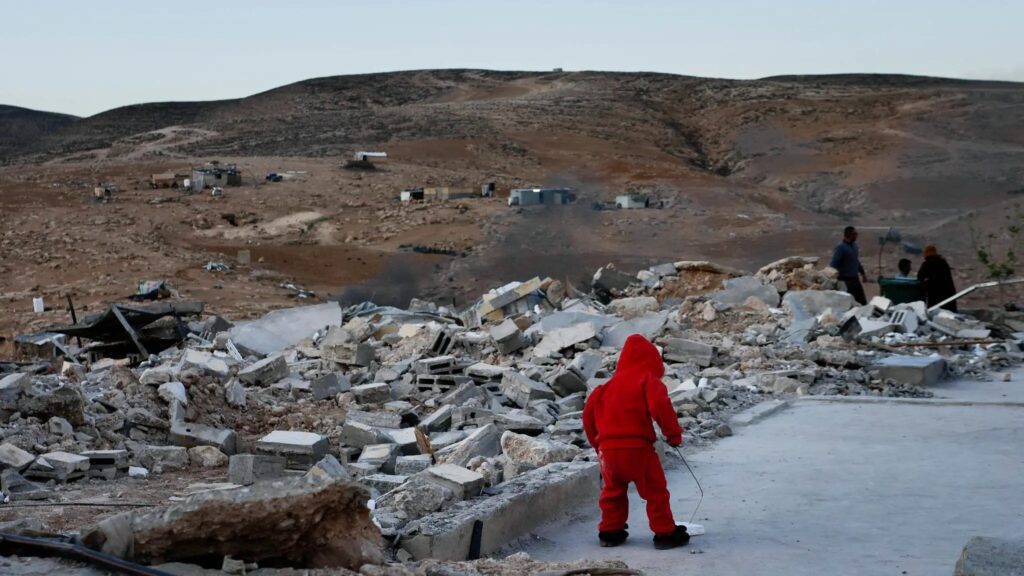


There are homes and an elementary school bulldozed to a useless heap of rubble amid the cries of children. Chicken and livestock pens indiscriminately destroyed. A man shot after a tussle over a generator, resulting in him becoming paralyzed from the waist down. Another man is shot point-blank through the chest by an armed Israeli settler. In a rather sinister turn (as if they couldn’t get more evil), members of the army filled water wells with cement and cut off water pipes, conveniently forgetting the basic fact that water is a fundamental human right.
Why do the Masafer Yatta villagers stay, you might ask, simply because there is “no other land.” The documentary takes its title from the cries of an anguished woman. When asked where they are supposed to go, she responds: “There’s no other land; that’s why we suffer for it.” Why would they leave a land that has been in their families for decades, perhaps over a century even? And just because the Israeli army “needed” an area for tank training? At the end of the film it was mentioned that they were forcefully evicted “to prevent further Arab expansion.”
No Other Land carries with it the weight of a consequential and controversial topic, it’s no wonder the film could not find a U.S. distributor and is yet to be carried by a major streaming site. After weeks of looking for a way to stream the film, I found a thread on Reddit which detailed different ways. I watched it through this link.
More than highlighting the plight of the Palestinians, specifically those in the West Bank, No Other Land shows us that if we can only have more empathy regardless of our ethnic, religious, and political backgrounds, this world could be a much better place, where there would be lesser deaths and more friendships like the one shared by Basel Adra and Yuval Abraham. It doesn’t explicitly say that, nor does it offer solutions. Seeing, however, how the Palestinian and Israeli friends have formed a deep friendship founded on trust and respect gives us a flicker of hope. And hope, no matter how small, could help us pull through even the darkest of nights.
Related story: REVIEW: ‘Conclave’ is sinfully good entertainment
Related story: REVIEW: ‘Gladiator II’ is a letdown of colossal proportions
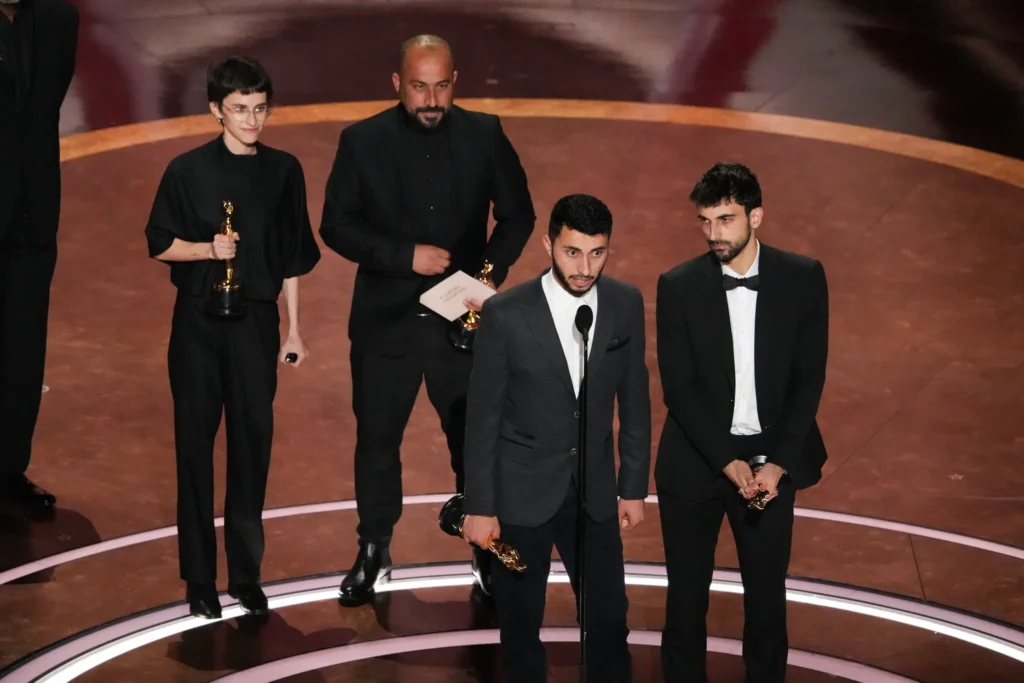


As I was watching the documentary last night, a notification pinged on my phone: the number of deaths in Gaza has crossed the 50,000 mark, per Al Jazeera. That number—50,021 to be exact—is about 2.1% of the 2.3 million pre-war population of the enclave, or around 1 in 50 people. A total of 113,274 others had been injured in the same period, the report added.
There’s still no end in sight, but the Palestinian people will endure, much like the brave villagers of Masafer Yatta. They will continue to resist, rebuild, and reclaim, even in the face of a seemingly invincible force.
Borrowing the words of Basel Adra, “To resist, it takes time. One water drop doesn’t make a change. But keep dropping the water and it will (eventually) make a change.”
No Other Land paints a bleak picture, and one which is all too heartbreakingly real. It is a difficult but necessary watch—one that reminds us of the value of empathy, friendship, courage, and hope in the face of unspeakable evil.
You can watch No Other Land here.

